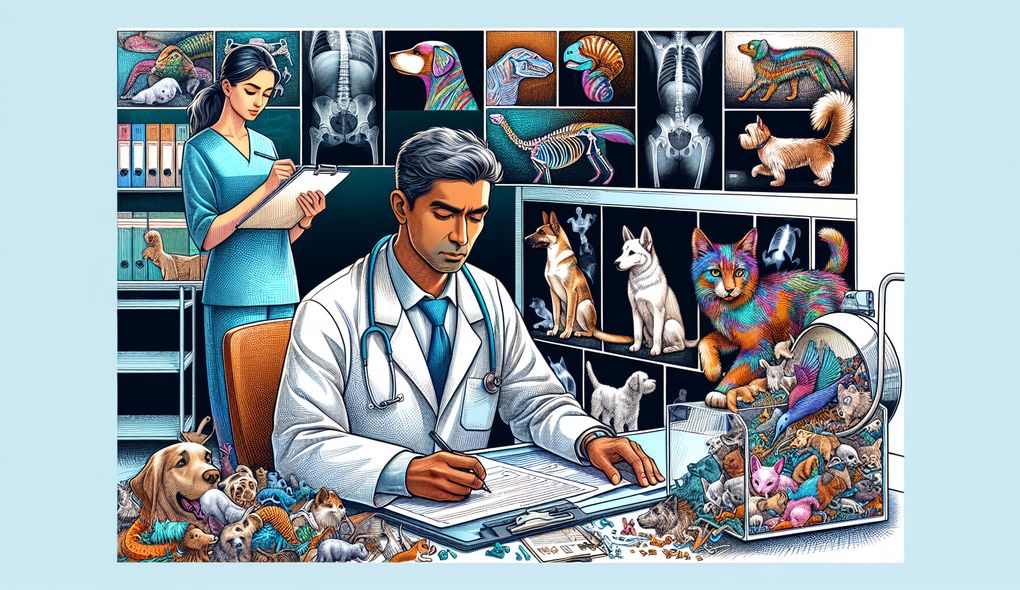What steps do you take to ensure accurate and thorough documentation of your work?
SENIOR LEVEL

Sample answer to the question:
To ensure accurate and thorough documentation of my work, I follow a systematic process. First, I carefully review the medical images, such as X-rays, MRIs, and ultrasounds, to identify any abnormalities or injuries. I then document my findings, including the location and severity of the condition, using a standardized format. Additionally, I make note of any important clinical history or observations that may be relevant to the diagnosis. Finally, I review and double-check my documentation before submitting it to ensure accuracy and completeness.
Here is a more solid answer:
To ensure accurate and thorough documentation of my work, I follow a meticulous process. Firstly, I carefully review the medical images, such as X-rays, MRIs, and ultrasounds, paying close attention to every detail. I then document my findings in a structured and organized manner using a standardized format, ensuring that all relevant information is included. Additionally, I make sure to record any important clinical history or observations that may be pertinent to the diagnosis. To enhance accuracy, I employ a double-checking system, where I review and verify my documentation before submitting it for further review. This helps to catch any errors or omissions and ensures that my work is complete and reliable. Overall, my attention to detail, organizational skills, and commitment to accuracy play a crucial role in maintaining accurate and thorough documentation of my work.
Why is this a more solid answer?
The solid answer addresses the evaluation areas by providing specific details on the candidate's process for ensuring accuracy and thoroughness in their documentation. It also highlights their organizational skills and attention to detail, which are important for maintaining accurate records. Additionally, it mentions their commitment to double-checking their work for errors or omissions, further enhancing the accuracy of their documentation.
An example of a exceptional answer:
Ensuring accurate and thorough documentation of my work is of utmost importance to me. To achieve this, I have developed a comprehensive approach. Firstly, I create a detailed template specifically designed for veterinary radiology cases, which helps guide me in documenting the essential information. This includes recording the patient's clinical history, specific imaging techniques used, and relevant findings. Additionally, I make use of radiology-specific terminology to ensure clarity and precision in my documentation. To stay organized, I maintain a digital database where I securely store all the documentation, allowing for easy retrieval and reference in the future. Furthermore, I regularly review and update my documentation to reflect any changes or advancements in the patient's condition. This ongoing revision process ensures that my documentation remains accurate, up to date, and comprehensive, providing a reliable resource for future reference and analysis. Through my meticulous approach, I am confident in the accuracy and thoroughness of my documentation, which ultimately contributes to effective patient care and collaboration with other veterinary healthcare professionals.
Why is this an exceptional answer?
The exceptional answer goes above and beyond by providing specific strategies and techniques that the candidate employs to ensure accurate and thorough documentation. It mentions the use of a customized template, the use of specialized terminology, and the maintenance of a digital database for easy retrieval and reference. It also highlights the candidate's commitment to regular review and updating of documentation, reflecting their dedication to maintaining accuracy and staying current. These additional details demonstrate the candidate's thoroughness and commitment to excellence in their documentation process.
How to prepare for this question:
- Familiarize yourself with the proper format and terminology used in veterinary radiology documentation.
- Develop a personalized template or checklist to ensure consistency and completeness in your documentation.
- Practice reviewing and double-checking your work to catch any errors or omissions.
- Stay up to date with advancements in veterinary radiology to ensure your documentation reflects the latest knowledge and techniques.
- Consider how you can organize and store your documentation effectively for easy retrieval and reference in the future.
What are interviewers evaluating with this question?
- Attention to detail
- Organizational skills
- Communication skills

